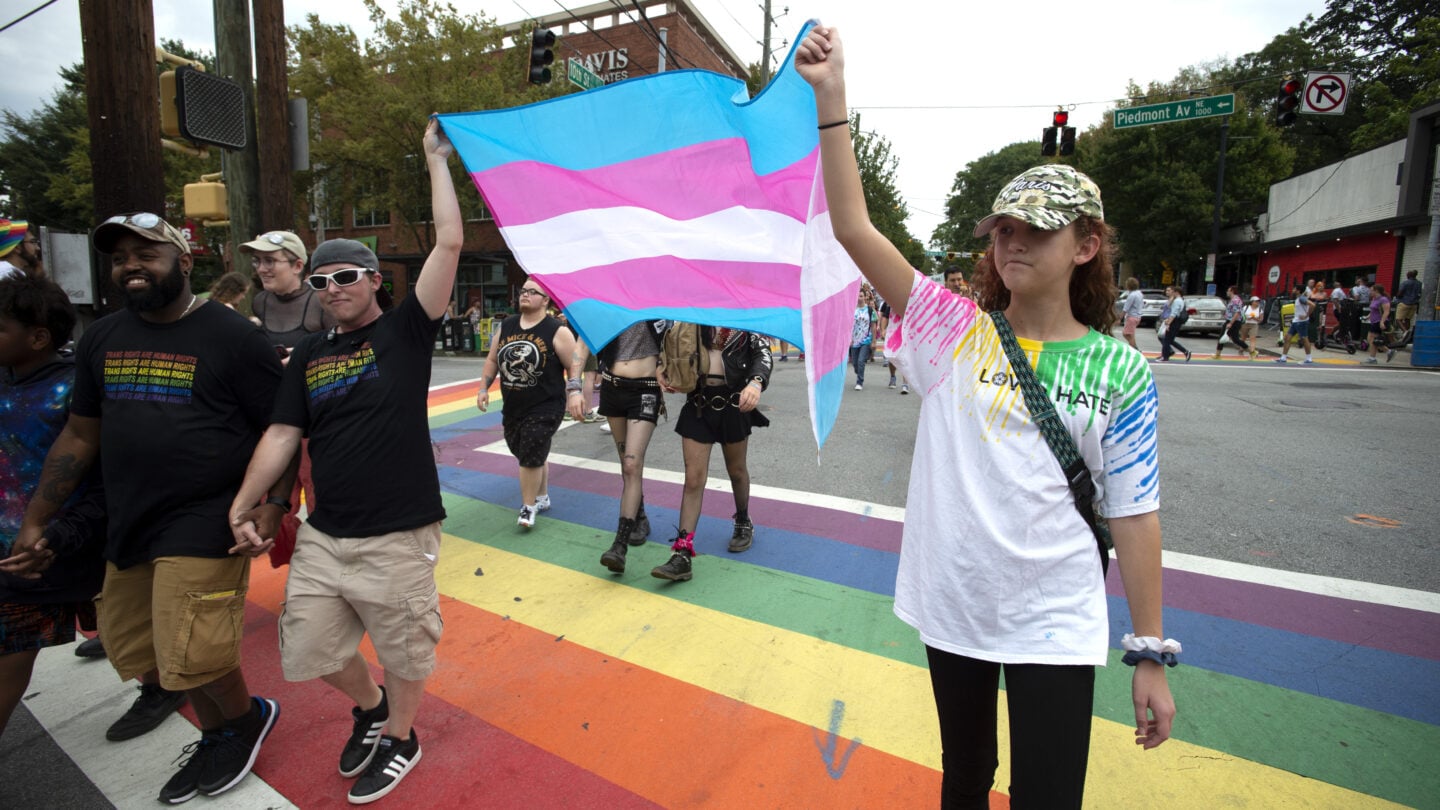Activists discuss history of Atlanta Pride in honor of 50th anniversary

Black transgender activist Marsha P. Johnson once said, “History isn’t something you look back at and say it was inevitable; it happens because people make decisions that are sometimes very impulsive and of the moment. But those moments are cumulative realities.” Today, “City Lights” looks at the history of Atlanta Pride, and how far we’ve come in the last 50 years. Two scholars on the subject joined host Lois Reitzes via Zoom to talk about the Festival’s origins: LGBTQ activist and founder of Touching Up Our Roots Dave Hayward, and Dr. Eric Solomon, Emory visiting assistant professor of American Studies and English.
Interview highlights:
Atlanta after the Stonewall Uprising of 1969:
“There wasn’t that much of a response to Stonewall immediately, from what I’m told. People were aware of it, and Berl Boykin… one of the founders of Atlanta Pride… did say that they were very aware of Stonewall happening and that that emboldened them,” said Hayward. “We had our own little Stonewall ‘happening,’ when… the Solicitor General’s office raided the Ansley Mall mini-cinema showing of Andy Warhol’s Lonesome Cowboys, and that was on Aug. 5, 1969.”
“That was basically six weeks after Stonewall, and [it was] just a huge uproar of the police coming in and stopping the movie, and interrogating the people, and photographing everyone, and arresting the projectionist. And then that was really the catalyst for things to happen here, for the Georgia Gay Liberation Front to come into being.”
The first Atlanta Pride March in 1971 and its pioneering organizers:
“Berl Boykin was one of the major people. Bill Smith, he’s the subject of a new book “A Night at the Sweet Gum Head.” It tells his personal story. Steve Abbott, who did a cartoon for the Great Speckled Bird – that was the underground newspaper – he did a cartoon asking people to come out for 1971. In terms of women, Vicki Gabriner, who was a radical person and part of the Weathermen organization, actually, she was a major organizer, and Judy Lambert, she was the co-Chair of the Georgia Gay Liberation Front,” said Hayward.
“Oh, also, I can’t forget our first non-binary, gender-non-conforming leader Severin; also known as Paul Dolan,” added Hayward. “We didn’t really have the words for it, in terms of ‘trans,’ but he definitely fit into that category, and was very proud to perform as a man in a mustache with a beard and an evening gown.”
Reflections on queerness in today’s Atlanta:
“When I first met Dave in March 2020, I had recently experienced a play called ‘The Inheritance’… and there’s a character by the name of Eric in that play. Of course, I see a lot of myself in him,” said Solomon. “But he asked toward the end of the play, ‘What is the responsibility between gay men from one generation to another…?’” He went on, “Those questions really had deeply embedded themselves into my consciousness when I met Dave, and I think there is a responsibility that we have as generations of gay men, to those generations that have come before, on whose shoulders we stand.”
“Also, in my early 30s now, I understand there are younger generations of queer people who are looking to me and seeking advice, and I’m experiencing a lot of that for the first time. For me, it’s just important to document these stories and to preserve these voices of queer Atlantans; of the sites through which queer Atlantans have moved so that we can preserve it for the future generations and we can understand how we’re all connected across time, even when people are no longer with us,” said Solomon.
The launch of the “Touching Up Our Roots” digital story tour will be available on Oct. 15.





